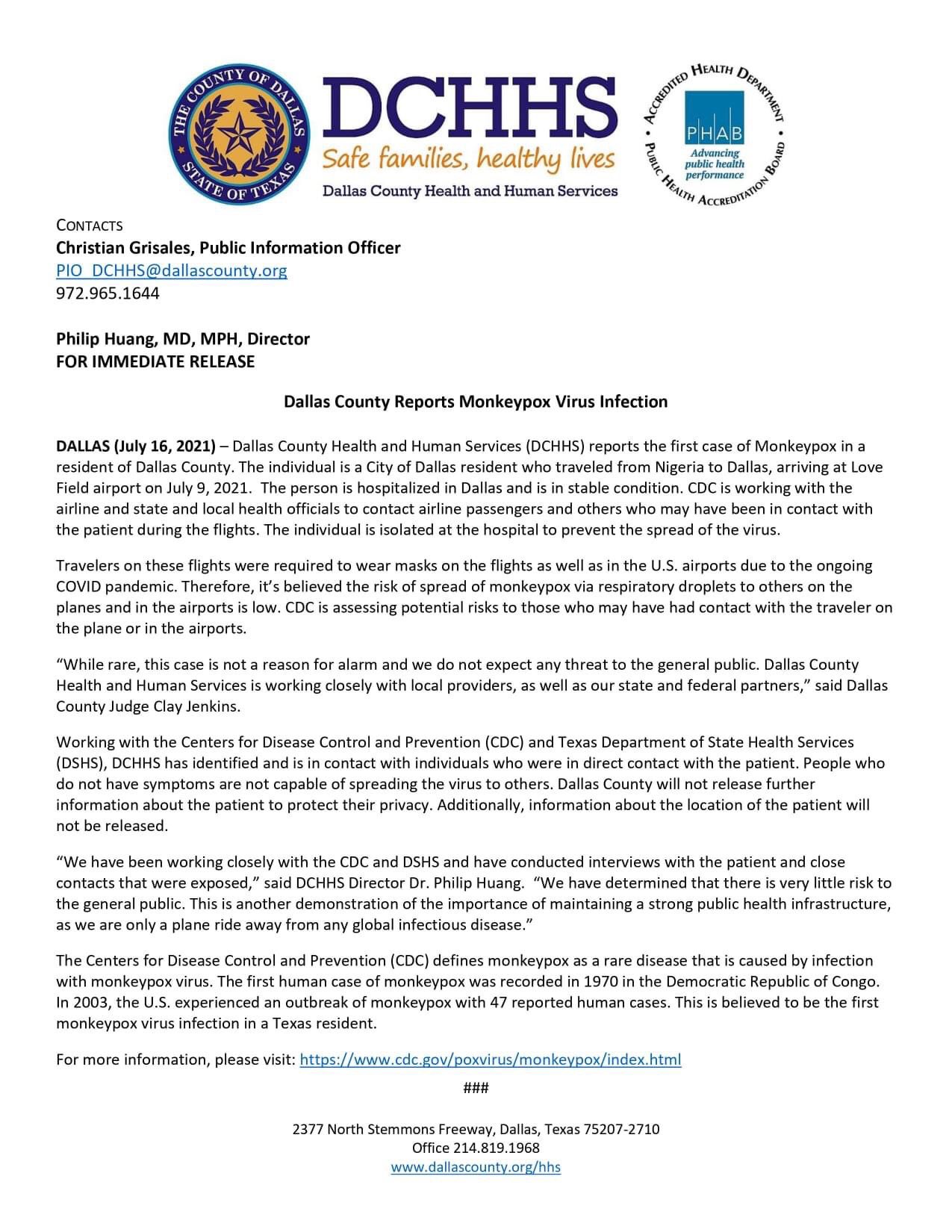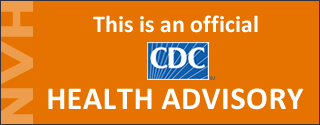Source: https://www.wfaa.com/article/news/he...a-5119e568c0e3
'Very little risk to the public': Dallas County resident being treated for monkeypox, officials say
The person traveled from Nigeria to Dallas, arriving at Love Field on July 9. The person is in stable condition, officials said.
Author: Eline de Bruijn
Published: 7/16/2021 2:12:28 PM
Updated: 2:12 PM CDT July 16, 2021
Facebook Twitter
DALLAS COUNTY, Texas — A resident of Dallas County is being treated at a hospital for monkeypox, a rare disease, health officials said Friday. This is believed to be the first monkeypox virus infection in a Texas resident, but officials say there is little risk to the public.
The person traveled from Nigeria to Dallas, arriving at Love Field on July 9, according to a statement from Dallas County Health and Human Services. The person is in stable condition.
The Center for Disease Control and Prevention has been identifying close contacts, including airline passengers who may have been in contact. Face masks were required on the flights and at the airports, the county health department said in a statement...
'Very little risk to the public': Dallas County resident being treated for monkeypox, officials say
The person traveled from Nigeria to Dallas, arriving at Love Field on July 9. The person is in stable condition, officials said.
Author: Eline de Bruijn
Published: 7/16/2021 2:12:28 PM
Updated: 2:12 PM CDT July 16, 2021
Facebook Twitter
DALLAS COUNTY, Texas — A resident of Dallas County is being treated at a hospital for monkeypox, a rare disease, health officials said Friday. This is believed to be the first monkeypox virus infection in a Texas resident, but officials say there is little risk to the public.
The person traveled from Nigeria to Dallas, arriving at Love Field on July 9, according to a statement from Dallas County Health and Human Services. The person is in stable condition.
The Center for Disease Control and Prevention has been identifying close contacts, including airline passengers who may have been in contact. Face masks were required on the flights and at the airports, the county health department said in a statement...





Comment